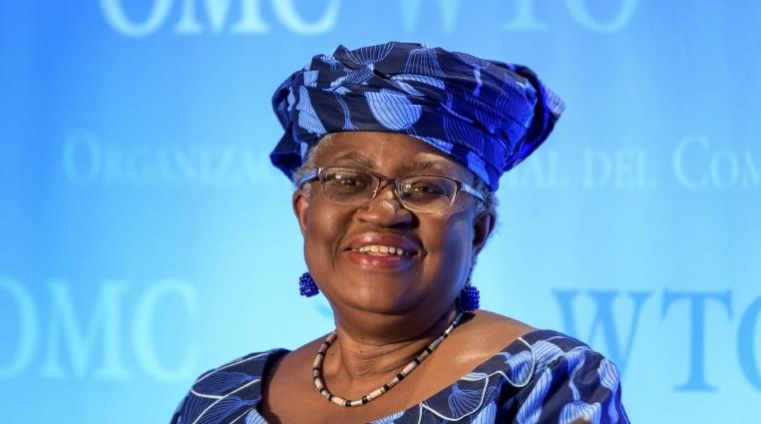As the rest of the world struggled to deal with the Covid-19 pandemic, New Zealand’s Prime Minister Jacinda Ardern only needed three months to work out a strategy that would keep her citizens protected.
Her tactful approach to control represented a mastery in leadership. By empathizing with her citizens while remaining steadfast in her containment directives, Ardern trounced efforts by her mostly male peers from around the world, who often appeared to be losing the fight.
It is no wonder then that some media declared her the most efficient leader on the planet. And of course, owing to her great reputation, she went on to win a second term with a landslide result in the October 2020 general election
At home, in Africa, the continent is celebrating the appointment of Nigerian economist Ngozi Okonjo-Iweala as the first woman and African to head the World Trade Organisation.
Okonjo-Iweala beat eight of the world’s best contenders from four continents to clinch the post, with her selection being favoured by an excellent track record that includes raising nearly $50bn in aid for Africa’s poorest countries in 2010 while she worked at the World Bank.
This was five years after she negotiated an $18bn debt write-off for Nigeria as Finance minister, helping the country obtain its first-ever sovereign debt rating. Already, we know that she will do a great job in her new office after she vowed to take on global health challenges, amongst other issues Ardern and Okonja-Iweala are great examples of just how much success women can achieve if put in positions of leadership.
Yet they are not the only ones; everywhere you look, there are women leading exciting revolutions - from agriculture to medicine to aviation and the arts. And there is room for more, particularly in the fields of science, technology, engineering and mathematics (STEM), where it was previously thought that women’s participation was hindered by a lack of role models.
That hurdle has since been overcome with numerous girls beating insurmountable odds to become doctors, engineers, pilots and researchers, amongst other novel professionals. Obviously then, it is rather unsettling that even after such a show of initiative, today, in 2021, highly qualified women are still required to contest unconscious biases, discrimination, and uninviting climates in professional environments.
As a result of these workplace difficulties, women only make up 28 percent of researchers across the world with most opting to leave the scientific workforce early following disparities that keep them stuck in junior positions with no decision-making authority.
The situation is the same in sub-Saharan Africa where women make up only one-third of researchers in all disciplines, according to UN data. It is even harder for women in the region to advance in their careers owing to deep-rooted cultural barriers that demand them to balance their professional lives with family responsibilities.
However, we are now at a change-point, where the world is beginning to realize that no meaningful progress can be achieved without women in key leadership positions. It is, therefore, my hope that we will begin to see a commitment to inclusivity that deliberately seeks to break the unnecessary biases that women professionals continue to suffer.
For starters, I propose a review of the stratification in Africa’s healthcare system, where women dominate at the level of service delivery but are overshadowed by men in decision making positions. This would especially be a great time for such a review because, after the Covid-19 pandemic, the world understands the importance of superior healthcare systems.
Afterwards, we can move on to address the other inequalities that prevent women from playing a leading role in Africa’s pursuit of a transition to a knowledge-based economy that is driven by innovation.
It is a choice, but it is also the only choice we have.
*****
Sophia Baah is the Chief Operating Officer of mPharma, a Pan-African technology-driven healthcare company building
Latest Stories
-
DDEP, not reforms, behind ratings boost – Economic Advisor Sharif Mahmud Khalid admits
18 minutes -
Fitch upgrade: We’re not rushing to re-enter external markets – Sharif Mahmud Khalid
50 minutes -
‘No-bra, no-exam’ rule at Nigerian university sparks outrage
1 hour -
Spain’s government blames huge blackout on grid regulator and private firms
2 hours -
World’s only twice-a-year shot to prevent HIV could stop transmission – if people can get it
2 hours -
Mobile banker jailed 5 years for stealing GH¢70,840
2 hours -
ECG equipment thief jailed 5 years
2 hours -
Trader jailed 12 years for defiling minor
2 hours -
NPP 2026 Primaries: Bawumia doesn’t need favours, we’re ready – Miracles Aboagye
3 hours -
Police arrest school proprietor for preventing BECE candidates from writing exam
3 hours -
Two arraigned for alleged illegal gold trade
3 hours -
GWL uncovers illegal water connection at Adwoa Wangara apartment in Cantonments
3 hours -
Education Minister opens CIHRM 2025 conference
4 hours -
The Pulse & Vbyz Experience: A Galdem DJ Mixtape
5 hours -
Kennedy Agyapong doesn’t need much marketing – Kwesi Kwarteng says ahead of NPP’s 2026 primaries
5 hours

